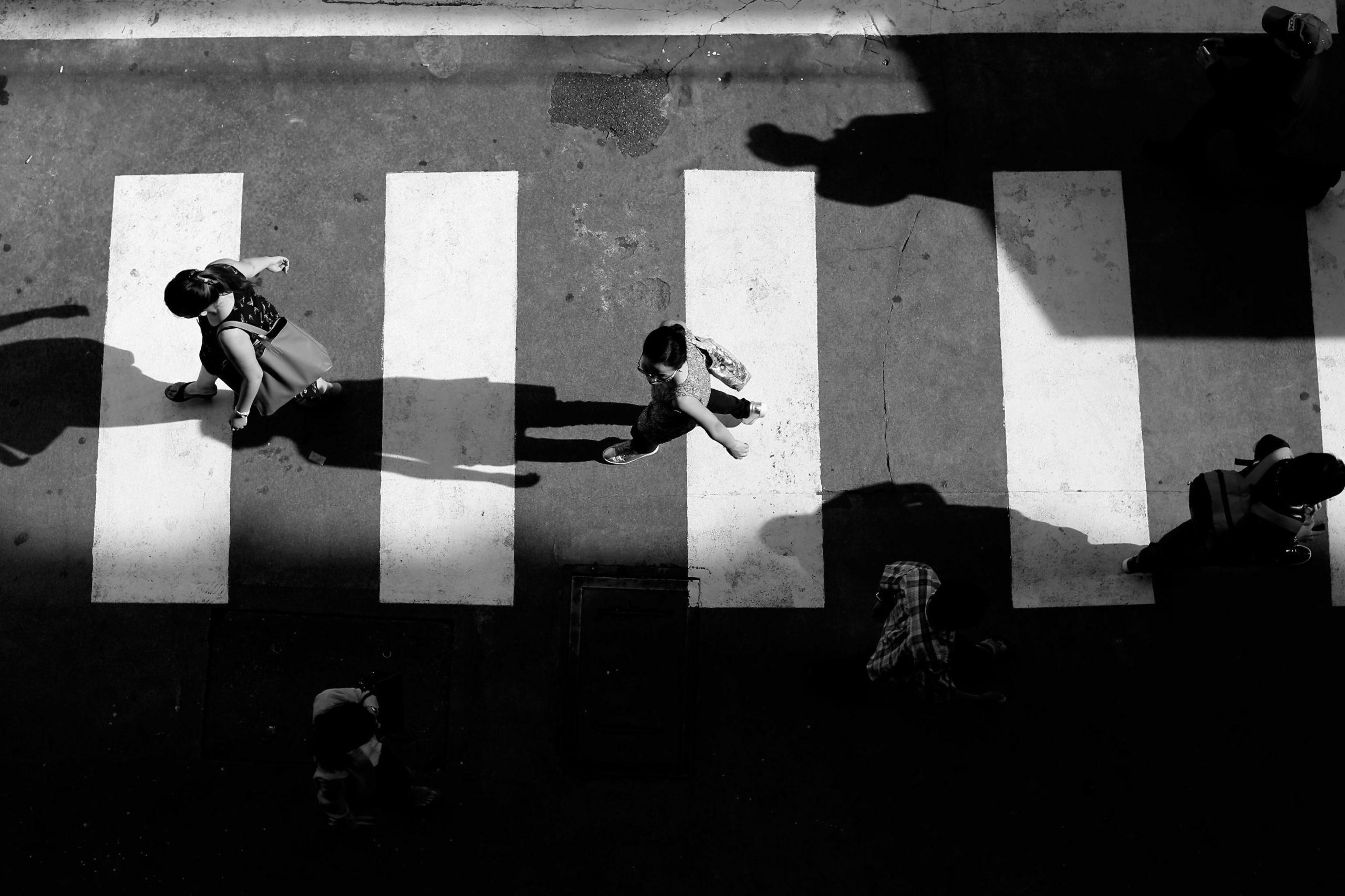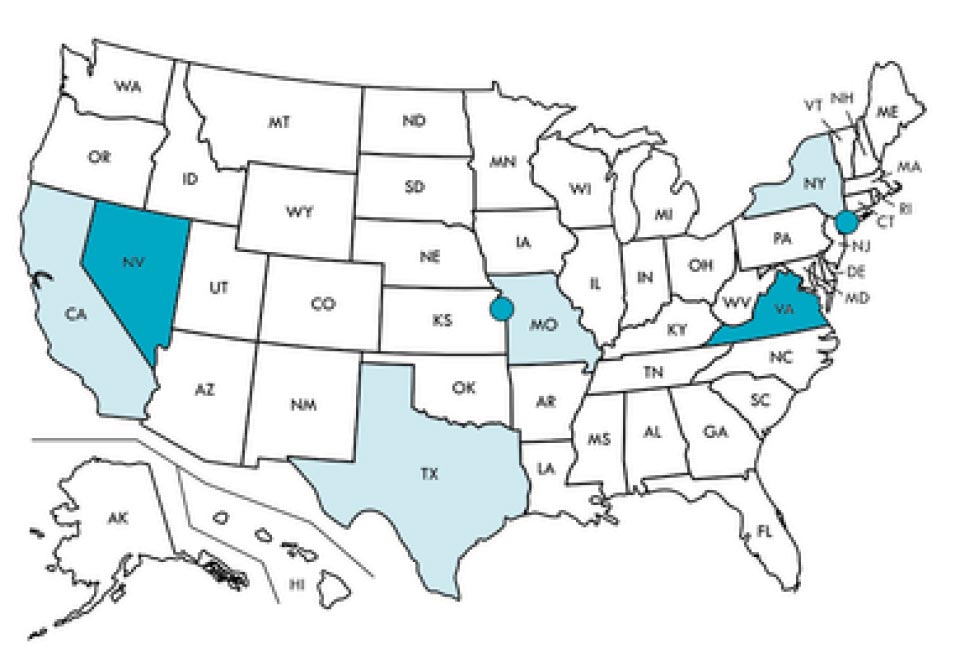
In the 1920s, automotive companies introduced the term “jaywalking” as part of their effort to shift the blame for pedestrian deaths from drivers to walkers.
Today, jaywalking laws are used to disproportionately ticket and search BIPOC community members, while failing to protect people who are walking and rolling from traffic crashes.
Enforcement of jaywalking causes disproportionate harm to Black, Brown, and Indigenous people. These laws can be used for pretextual stops, and can lead to police violence. The cost of a ticket can have outsized financial impacts, and court involvement can lead to collections, deportations, or impacts to employment.
Jaywalking laws do not make us safer
A person crossing mid-block has the same likelihood of being struck and killed by a driver as a person crossing at an intersection. Federally sponsored research in the 1990’s looked at the types of situations in which “serious pedestrian crashes” occurred and found that cars struck people crossing in a crosswalk almost as often (25% of the time) as they struck people crossing midblock (26%). Pedestrian crossings may be miles apart on some streets, making jaywalking more likely.
Lowering vehicle speeds, as well as creating a network of safer crosswalks, lighting, and sidewalks are the best defense against pedestrian deaths. Washington State has already identified nearly $10 billion in active transportation funding needed over the next 10 years to meet the needs of people walking and rolling.
We ask Washington State Legislators and local jurisdictions to repeal laws which make it illegal to cross mid-block, cross against a signal, or walk in the street. We also ask legislators to collect data at the state and local levels on the number of citations and warnings, the types of citations, demographics including race and income of people stopped, and the context of the stop.
Jaywalking appeals nationwide

Virginia and Nevada both decriminalized jaywalking in 2021, as did Kansas City, MO. New York City proposed legislation in 2020. Both California and Texas have attempted to advance legislation to overturn jaywalking laws.
Data across the country shows disproportionate enforcement
- Seattle — Of the total 1,710 jaywalking tickets issued by Seattle police from 2010 to 2016, 447 — more than one in four — went to a Black pedestrian. Black people represent just about 7 percent of the city’s population. (cite)
- Jacksonville, Fla. — A ProPublica and Florida Times-Union report published in 2017 showed that Black residents of Jacksonville are three times more likely to receive a citation for a pedestrian violation than white residents.
- Ferguson, Mo. — According to the U.S. Department of Justice, between 2011 and 2013, Black people in Ferguson, Mo., received 95% of jaywalking tickets.
- San Diego — Black people represented 16% of all San Diego jaywalking citations issued between January 2015 and June 2021, according to data provided by the San Diego Police Department, despite being only 6% of the city’s population. (cite)
- Los Angeles — In L.A., nearly a third of pedestrians issued jaywalking tickets over the last decade were Black — in a city with a 9% Black population. (cite)
- Sacramento — In 2016, half of the 233 jaywalking tickets Sacramento’s law enforcement officers issued went to Black people. Yet, Black individuals make up just 15% of the city’s population. (cite)
- Long Beach, Calif. — Black residents make up about 11% of Long Beach’s population, but they account for 36% of police citations for minor infractions like jaywalking, smoking in a park and riding a bike at night without a light. (cite)
- New York City — From January 1 to March 31, 2020, the NYPD wrote 80 tickets for illegal crossing and only one went to a person identified in police logs as “white.” The rest — 78 of the 79 tickets for which a race was listed, or 99 percent — went to Black or Hispanic individuals, who comprise about 55% of the population. (cite)
- Kansas City, Mo. — 123 citations have been issued for jaywalking in Kansas City over the past three years. Of those, 65% were issued to Black people and 34% were written to white people. Nearly 30% of Kansas City residents are Black, while about 55% of residents are white, according to recent census data. (cite)
- Atlanta. Atlanta’s residential population is about 52% Black, 40% white, 4% Hispanic, and 4% Asian. Yet 90% of those ticketed for jaywalking and 81% of those cited for not using the sidewalk were Black. (cite)
People and groups that support repealing jaywalking laws
- Whose Streets, Our Streets! (Seattle, WA) recommended “repeal anti-jaywalking laws.”
- Cooper Jones Active Transportation Safety Council (WA state) suggested the state “reduce or eliminate police contacts related to low-level traffic incidents and develop non-enforcement-based approaches to traffic safety, such as allowing mid-block crossing of pedestrians when no vehicles are within the block and there is no risk to the pedestrian or vehicle driver”
- Mobility Justice advocates Charles T. Brown & Angie Schmitt provided nine reasons to eliminate jaywalking laws now
- People for Mobility Justice emphasize that “Jaywalking laws rarely protect pedestrians and they are abused to racially profile people”
- Transportation Equity Caucus called for redefining safety to remove enforcement from safety programs
- California Walks and America Walks called for California to decriminalize jaywalking
- Bike Walk KC advocates for decriminalization of walking and biking
- California Bicycle Coalition, California Walks, Los Angeles Walks, and the Lawyers’ Committee for Civil Rights of the San Francisco Bay Area plus dozens more wrote in support to repeal California “jaywalking” laws by legalizing certain common and safe street crossings that currently qualify as traffic infractions.
- Atlanta Bicycle Coalition demonstrates that “jaywalking” citations show stark racial disparities and no measurable impact on pedestrian safety.




